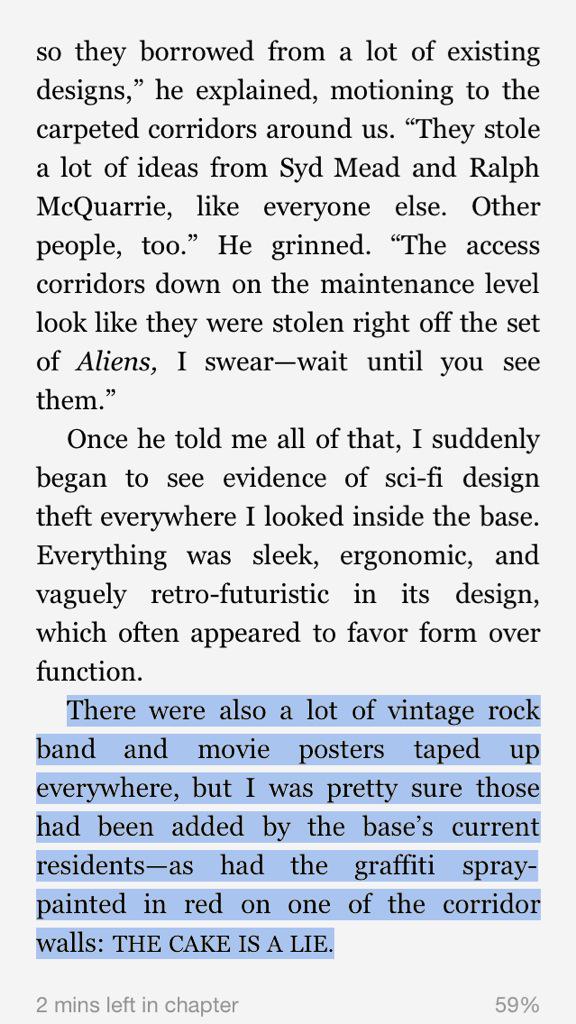See, I can't buy this because Ernest Cline has now written two books where the protagonists have been immensely rewarded for being deep into nerd culture. If Ernest Cline was actually interested in providing meaningful commentary on how becoming obsessed with pop culture is a waste of time and can be "off putting" he wouldn't have made his two protagonists parley their knowledge of The Last Starfighter into scoring with hot babes.
I don't think so. RPO plays it totally straight. The characters are badasses of the OASIS because they know all these references and uncovered all these puzzles. There is no insight about how sad and pathetic it is to live in a world where the fucking 1980s are the pinnacle of culture. I mean, Cline says as much in the AMA.
There's nothing on the page that makes it sad or pathetic to the people living in that world. But it came off that way to me, sometimes. And presumably lots of other people. I found it interesting. It's almost like a barometer for the reader - how nerdy are you? I know Pac-Man really well - so all those bits make me smile. But some of the other stuff in the book? That's too far - those guys are too into their hobby.
I'm not entirely sure what your exact comparison is in Fight Club (and haven't read it in maybe a decade or so), but to the extent that anything was cloying about the prose or the world constructed in Fight Club, it's in service of the themes: anticonsumerism, conspicuous consumption, identity as performance, ego-death, masculinity in modernity, resistance, anarchy, sincerity, psychosis and the nature of reality, therapy. I'm not going to say Palahniuk is highly literary or high-brow, but he is clearly grappling with ideas that matter.
The Fight Club comparison is for the audience of people that think Tyler Durden is cool or right.







